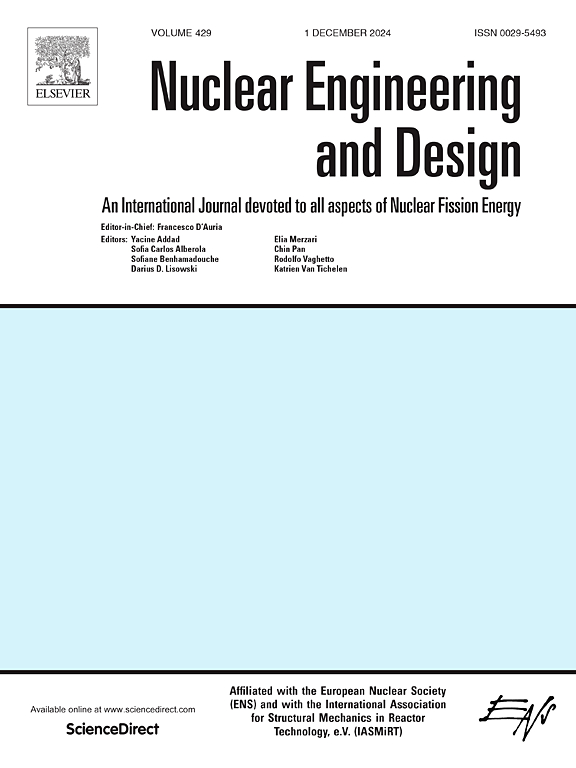基于贝叶斯搜索算法的超临界水换热系数预测模型优化研究
IF 1.9
3区 工程技术
Q1 NUCLEAR SCIENCE & TECHNOLOGY
引用次数: 0
摘要
为了更好地利用机器学习算法对超临界水反应堆进行热水力分析,采用不同的智能算法对模型参数进行优化,预测超临界水的换热系数。比较分析了不同参数空间下随机搜索算法和贝叶斯搜索算法预测换热系数的精度变化。结果表明,搜索空间和初始分布假设对结果影响较大。贝叶斯搜索算法受搜索空间和参数分布假设的影响相对较小。贝叶斯搜索得到的预测精度比随机搜索得到的预测精度高1.25 ~ 2.88%。对模型参数进行优化后,预测超临界水换热系数的平均测试精度达到96.4%以上。同时,分析了不同搜索算法得到的最优参数点的空间分布特征。本文章由计算机程序翻译,如有差异,请以英文原文为准。
Optimization research of heat transfer coefficient prediction model for supercritical water based on Bayesian search algorithm
In order to make better use of machine learning algorithm to perform thermo-hydraulic analysis of supercritical water reactor, different intelligent algorithms are used to optimise the model parameters for predicting the heat transfer coefficient of supercritical water. The accuracy changes of stochastic search and Bayesian search algorithms in predicting the heat transfer coefficient under different parameter spaces are compared and analysed. The results show that the search space and the initial distribution assumption have a large impact on the results. The Bayesian search algorithm is relatively less affected by the search space and parameter distribution assumptions. The prediction accuracy obtained by Bayesian search is 1.25–2.88% higher than that obtained by random search. After optimising the model parameters, the average test accuracy of predicting the heat transfer coefficient of supercritical water is more than 96.4%. At the same time, the spatial distribution characteristics of the optimal parameter points obtained by different search algorithms are analysed.
求助全文
通过发布文献求助,成功后即可免费获取论文全文。
去求助
来源期刊

Nuclear Engineering and Design
工程技术-核科学技术
CiteScore
3.40
自引率
11.80%
发文量
377
审稿时长
5 months
期刊介绍:
Nuclear Engineering and Design covers the wide range of disciplines involved in the engineering, design, safety and construction of nuclear fission reactors. The Editors welcome papers both on applied and innovative aspects and developments in nuclear science and technology.
Fundamentals of Reactor Design include:
• Thermal-Hydraulics and Core Physics
• Safety Analysis, Risk Assessment (PSA)
• Structural and Mechanical Engineering
• Materials Science
• Fuel Behavior and Design
• Structural Plant Design
• Engineering of Reactor Components
• Experiments
Aspects beyond fundamentals of Reactor Design covered:
• Accident Mitigation Measures
• Reactor Control Systems
• Licensing Issues
• Safeguard Engineering
• Economy of Plants
• Reprocessing / Waste Disposal
• Applications of Nuclear Energy
• Maintenance
• Decommissioning
Papers on new reactor ideas and developments (Generation IV reactors) such as inherently safe modular HTRs, High Performance LWRs/HWRs and LMFBs/GFR will be considered; Actinide Burners, Accelerator Driven Systems, Energy Amplifiers and other special designs of power and research reactors and their applications are also encouraged.
 求助内容:
求助内容: 应助结果提醒方式:
应助结果提醒方式:


